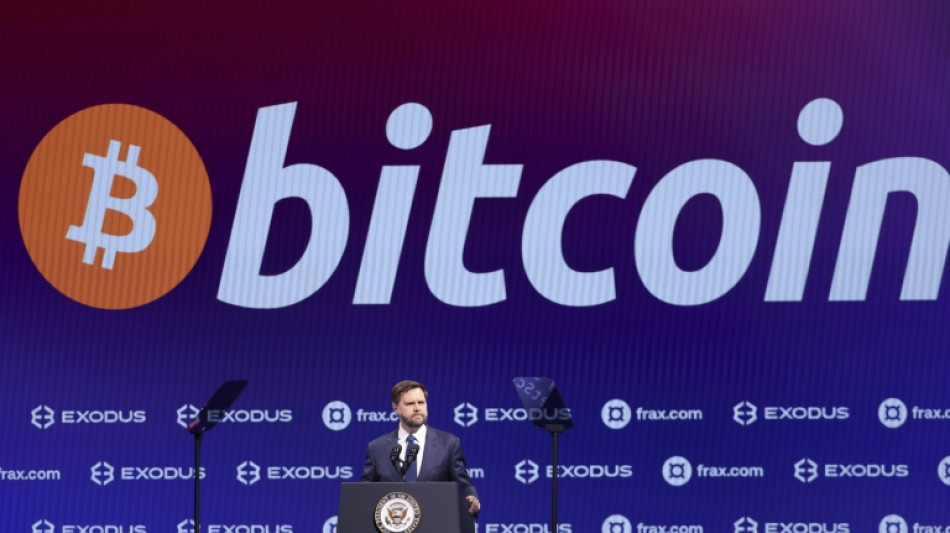
-
 India's gaming fans eye illegal sites after gambling ban
India's gaming fans eye illegal sites after gambling ban
-
EU business lobby head says China rare earths snag persists

-
 Botox under burqas: Cosmetic surgery in vogue in Afghanistan
Botox under burqas: Cosmetic surgery in vogue in Afghanistan
-
Asian stocks swing as traders bide time ahead of US rate decision
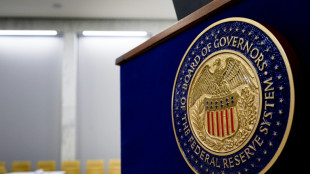
-
 Australia, Papua New Guinea delay mutual defence treaty
Australia, Papua New Guinea delay mutual defence treaty
-
PGA's 2026 opener will not be played at drought-hit Kapalua

-
 Toucans, tortoises saved in major Brazil trafficking bust
Toucans, tortoises saved in major Brazil trafficking bust
-
Britain rolls out royal red carpet for Trump's state visit

-
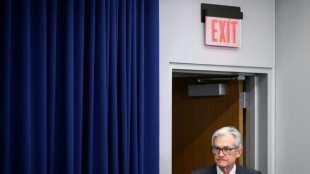 US Fed set for first rate cut of 2025 as Trump pressure looms
US Fed set for first rate cut of 2025 as Trump pressure looms
-
Broadway jeering Caesars Times Square casino bet

-
 Rojas, McLaughlin-Levrone go for gold at world champs
Rojas, McLaughlin-Levrone go for gold at world champs
-
Colombian FARC leaders ordered to make reparations for over 21,000 kidnappings

-
 Peru evacuates 1,400 tourists from Machu Picchu amid protest
Peru evacuates 1,400 tourists from Machu Picchu amid protest
-
Trump arrives in UK for historic second state visit

-
 Arsenal, Real Madrid win Champions League openers, Juve snatch dramatic draw
Arsenal, Real Madrid win Champions League openers, Juve snatch dramatic draw
-
Friends like these: NY to get 'Central Perk' cafe from beloved sitcom

-
 Mbappe penalty double gives Real Madrid opening win over Marseille
Mbappe penalty double gives Real Madrid opening win over Marseille
-
Juve salvage point against Dortmund with stunning late comeback

-
 Redford's Sundance legacy hailed by filmmakers
Redford's Sundance legacy hailed by filmmakers
-
Spurs accept Villarreal gift to make winning start in Champions League

-
 Trump arrives in Britain for unprecedented second state visit
Trump arrives in Britain for unprecedented second state visit
-
'A better future is possible': Youths sue Trump over climate change

-
 Redford's Sundance legacy 'beyond comprehension' for US filmmakers
Redford's Sundance legacy 'beyond comprehension' for US filmmakers
-
Vuelta protests 'a completely new phenomenon', says Tour de France director

-
 Bangladesh beat Afghanistan to stay alive in Asia Cup
Bangladesh beat Afghanistan to stay alive in Asia Cup
-
Trump extends delay on US TikTok ban until mid-December

-
 YouTube ramps up AI tools for video makers
YouTube ramps up AI tools for video makers
-
Arsenal subs snatch win in Bilbao Champions League opener

-
 Downton Abbey auction of props and costumes smashes estimates
Downton Abbey auction of props and costumes smashes estimates
-
Windsor prepares for global spotlight with Trump state visit

-
 Suspect in Charlie Kirk killing charged with murder
Suspect in Charlie Kirk killing charged with murder
-
France duo out of Women's Rugby World Cup semi-final as bans upheld

-
 Simeone backs Atletico to hurt 'extraordinary' Liverpool
Simeone backs Atletico to hurt 'extraordinary' Liverpool
-
IEA says more oil and gas investment may be needed

-
 Sabrina Carpenter, Justin Bieber, Karol G to headline Coachella
Sabrina Carpenter, Justin Bieber, Karol G to headline Coachella
-
Colombia halts US arms purchases in row over drug fight delisting
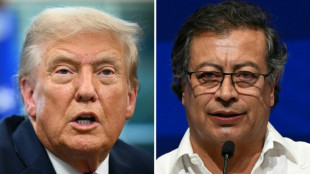
-
 Nestle says chairman Paul Bulcke to step down
Nestle says chairman Paul Bulcke to step down
-
Isak set for Liverpool debut in Atletico Madrid Champions League clash

-
 Malawi votes in economic gloom as two presidents battle for power
Malawi votes in economic gloom as two presidents battle for power
-
No info in files that Epstein trafficked women to others: FBI chief
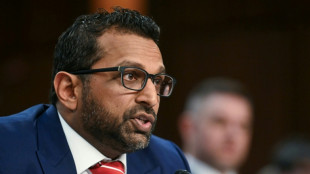
-
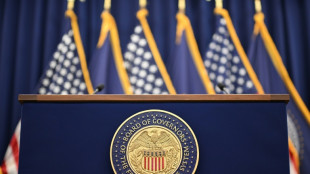 Stocks slip, dollar down as Fed meets on rates
Stocks slip, dollar down as Fed meets on rates
-
Faith Kipyegon: Supreme Kenyan champion and role model for mothers

-
 Hollywood giants sue Chinese AI firm over copyright infringement
Hollywood giants sue Chinese AI firm over copyright infringement
-
Bayern's Kane keen to rekindle London rivalry against Chelsea

-
 Trump sues NYT for $15 bn in latest attack on media
Trump sues NYT for $15 bn in latest attack on media
-
IndyCar reveals 17-race 2026 season with March opening

-
 Trump heads for landmark state visit with 'friend' King Charles
Trump heads for landmark state visit with 'friend' King Charles
-
Kipyegon sparkles, Tinch's time away pays off with world gold

-
 Kerr completes Kiwi world double after Beamish tonic
Kerr completes Kiwi world double after Beamish tonic
-
US Fed opens key meeting after Trump aide sworn in as governor
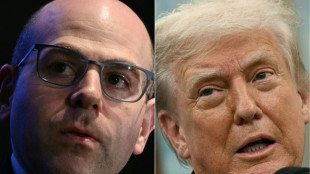
| RBGPF | 0% | 77.27 | $ | |
| CMSC | 0.29% | 24.39 | $ | |
| RYCEF | -0.06% | 15.64 | $ | |
| BCC | -3.31% | 82.39 | $ | |
| NGG | -1.04% | 70.88 | $ | |
| VOD | -0.34% | 11.77 | $ | |
| GSK | -0.62% | 40.05 | $ | |
| SCS | 0.06% | 16.88 | $ | |
| RIO | -0.44% | 63.44 | $ | |
| BCE | -1.11% | 23.43 | $ | |
| CMSD | 0.04% | 24.46 | $ | |
| RELX | -0.36% | 46.69 | $ | |
| JRI | -1.01% | 13.92 | $ | |
| AZN | -0.63% | 77.56 | $ | |
| BTI | -0.43% | 55.79 | $ | |
| BP | 0.64% | 34.43 | $ |

US House passes landmark crypto measures in win for Trump
The US House of Representatives on Thursday passed three landmark cryptocurrency bills, fulfilling the Trump administration's commitment to the once-controversial industry.
Lawmakers easily approved the CLARITY Act, which aims to establish a clearer regulatory framework for cryptocurrencies and other digital assets.
The bill is designed to clarify industry rules and divide regulatory authority between the Securities and Exchange Commission (SEC) and the Commodity Futures Trading Commission (CFTC).
It will now advance to the Senate, where Republicans hold a slim majority.
House legislators also readily passed the GENIUS Act, which codifies the use of stablecoins -- cryptocurrencies pegged to stable assets like the US dollar or US bonds.
This bill is expected to go directly to President Trump for his signature to become law.
The Senate passed the GENIUS Act last month, and it sets requirements such as mandating that issuers hold reserves of assets equal in value to their outstanding cryptocurrency.
"This historic legislation will bring our payment system into the 21st century. It will ensure the dominance of the US dollar. It will increase demand for US Treasuries," said Senator Bill Hagerty, the measure's sponsor in the Senate.
This wave of legislation follows years of skepticism towards crypto, driven by the belief that the sector, born from bitcoin's success, should be tightly controlled and kept separate from mainstream investors.
However, after crypto investors contributed millions of dollars to his presidential campaign last year, Trump reversed his previous doubts about the industry.
He even launched a Trump meme coin and other ventures as he prepared for his return to the White House and hosted a gala dinner for the coin's top buyers once he was in office.
And according to the Financial Times, Trump is now preparing to open the $9 trillion US retirement market to cryptocurrency investments as well as gold, and private equity.
Notably, both the CLARITY Act and the GENIUS Act garnered significant bipartisan support, with Democrats also having seen an increase in lobbying and contributions from the crypto industry.
"It's critically important we bring more certainty to the marketplace with clear rules of the road," said congressman Josh Gottheimer, a Democrat who supported the bills.
Since taking office, Trump has made several moves to support the crypto sector, including appointing crypto advocate Paul Atkins to lead the SEC.
He also established a federal "Strategic Bitcoin Reserve" to audit the government's bitcoin holdings, primarily accumulated through law enforcement's judicial seizures.
Forbes magazine estimates that the president's foray into the crypto business has doubled his wealth to $5.3 billion in just one year.
In a largely partisan vote, the Republican-led House also passed the Anti-CBDC Surveillance State Act.
It aims to block the issuance of a central bank digital currency (CBDC) -- a digital dollar issued by the US Federal Reserve -- even if there currently are no plans for such an endeavor.
Republicans argue that a CBDC could enable the federal government to monitor, track, and potentially control private citizens' financial transactions, thereby undermining privacy and civil liberties.
Passage of this measure in the Senate is far from guaranteed before it can go to the president's desk.
An earlier attempt to set aside the anti-CBDC bill caused a significant stir among a small group of Republicans and delayed passage of the other two bills until eleventh-hour lobbying by Trump helped resolve the issue.
J.Marty--VB
